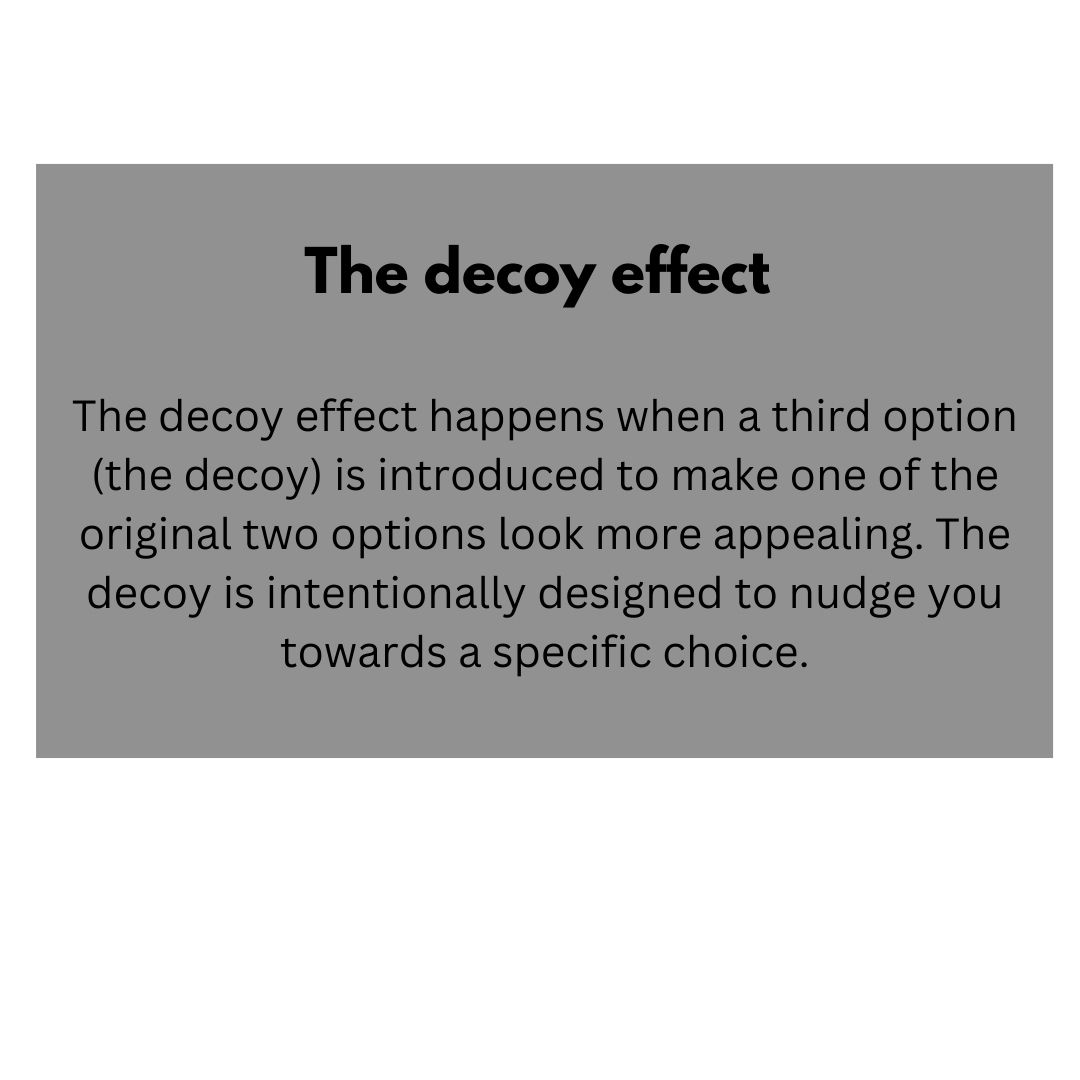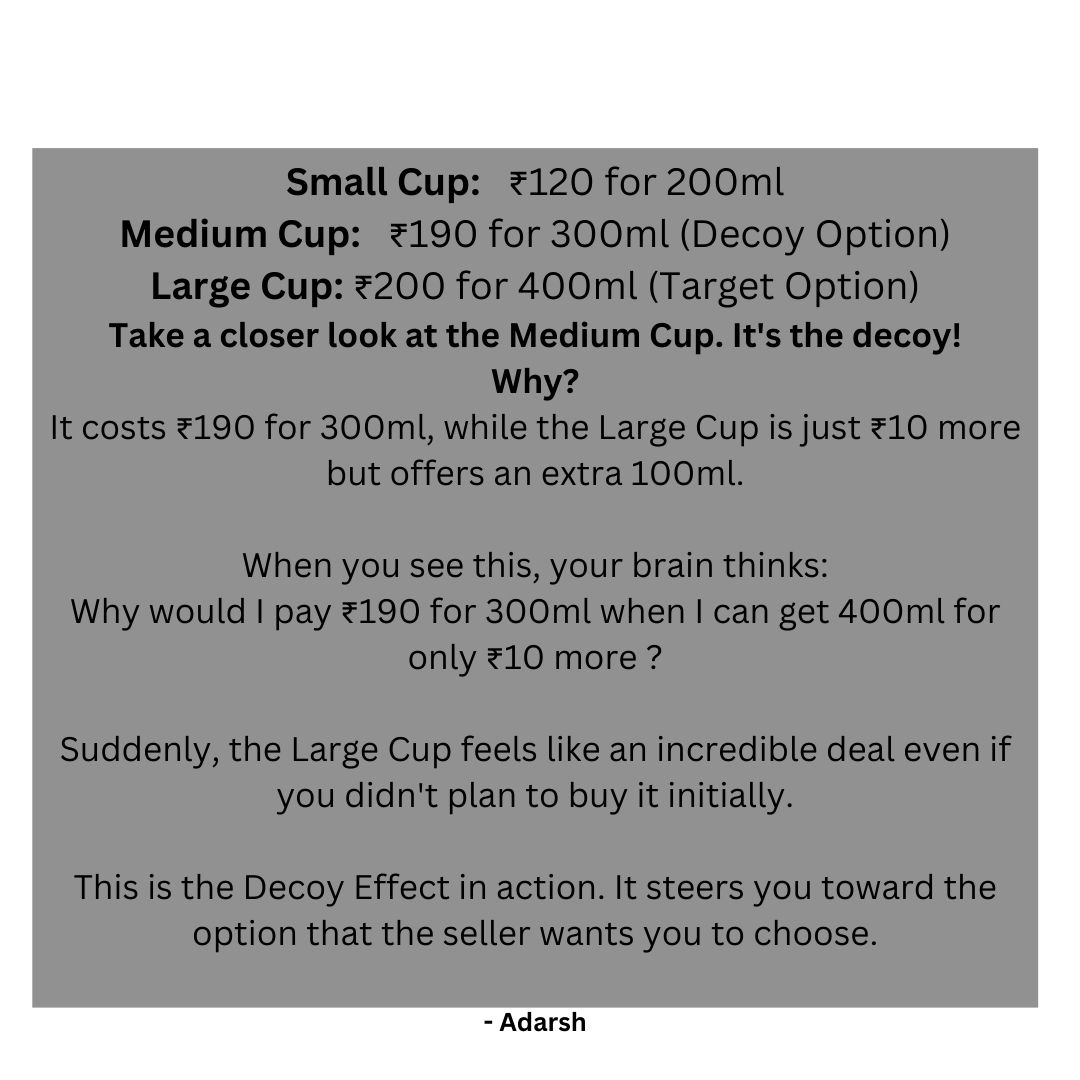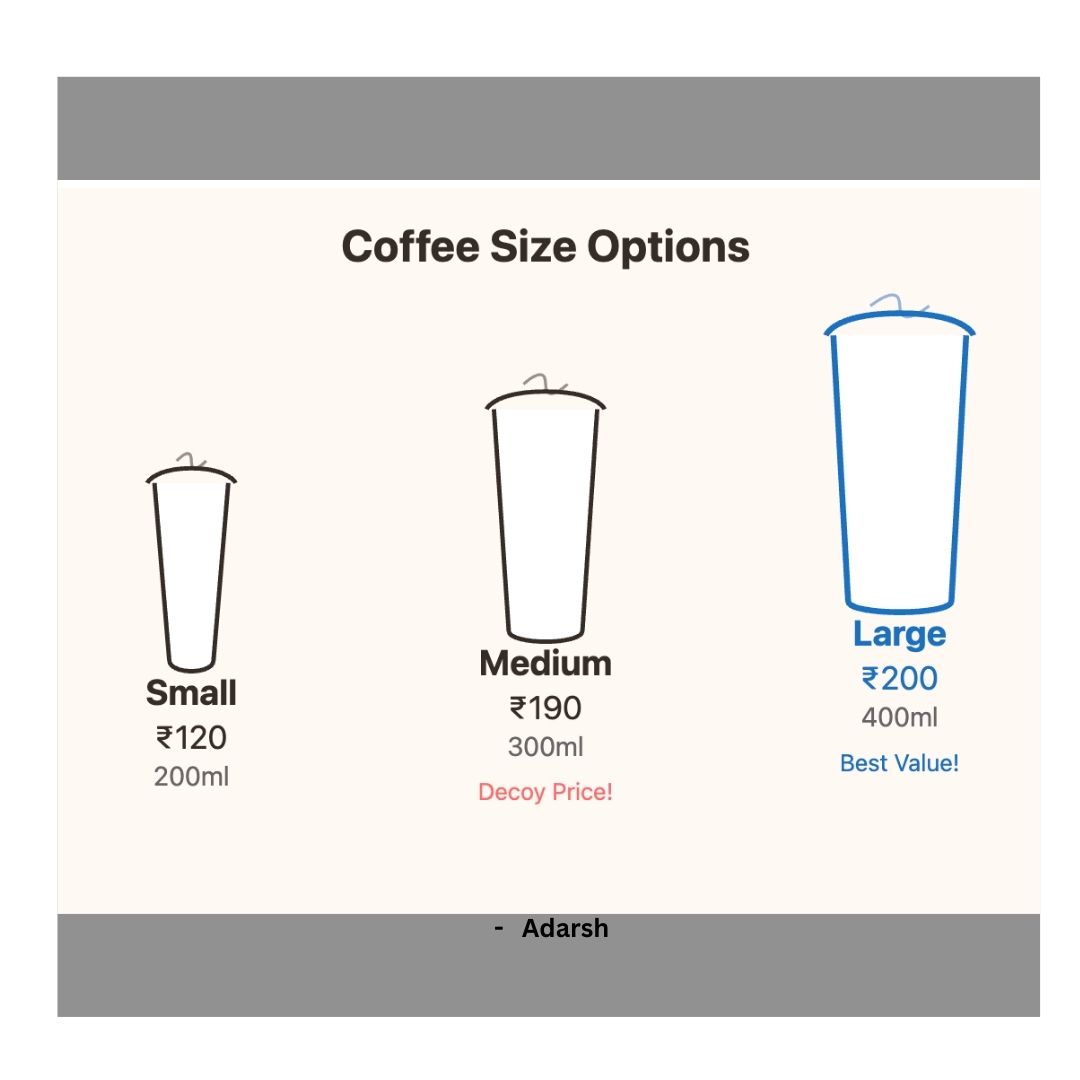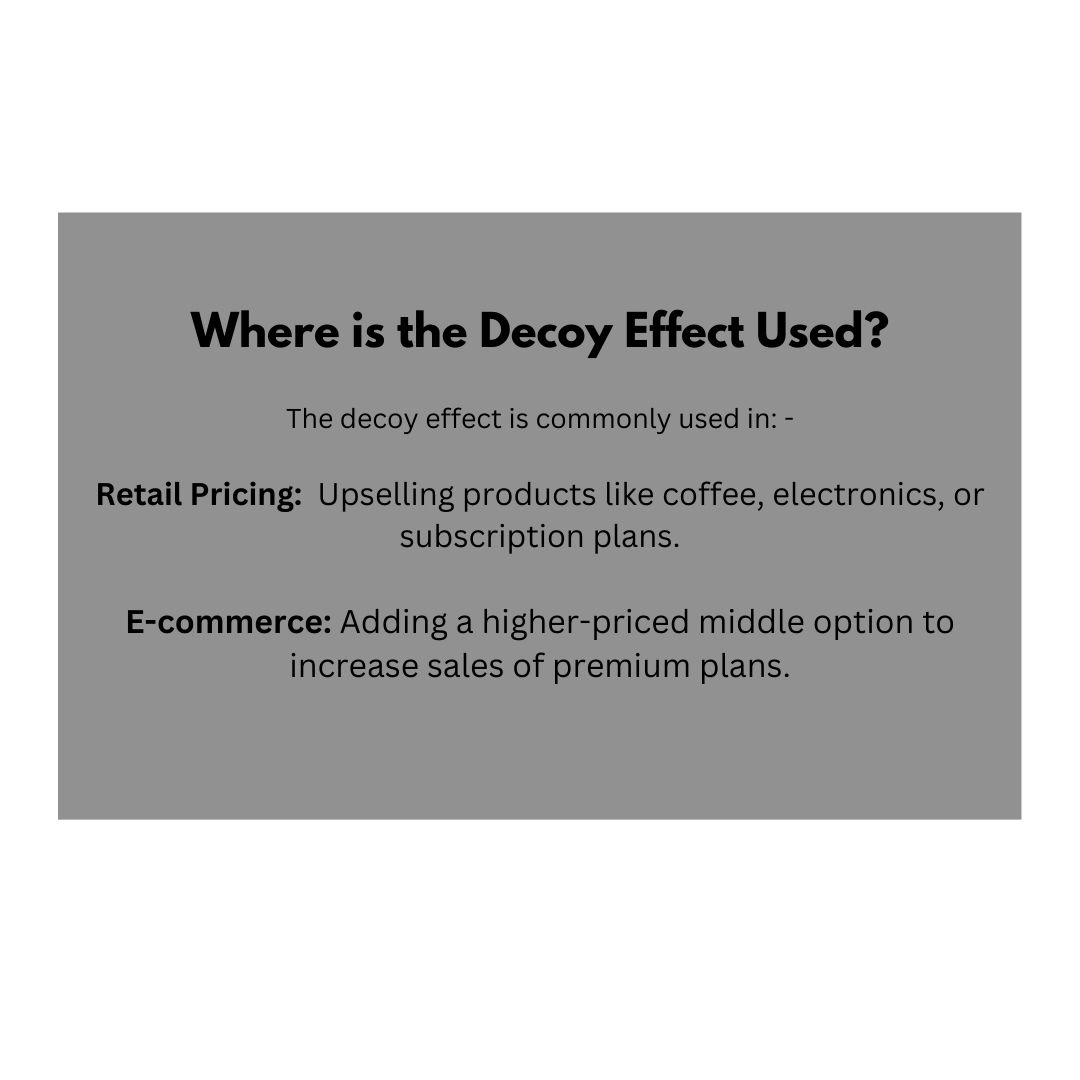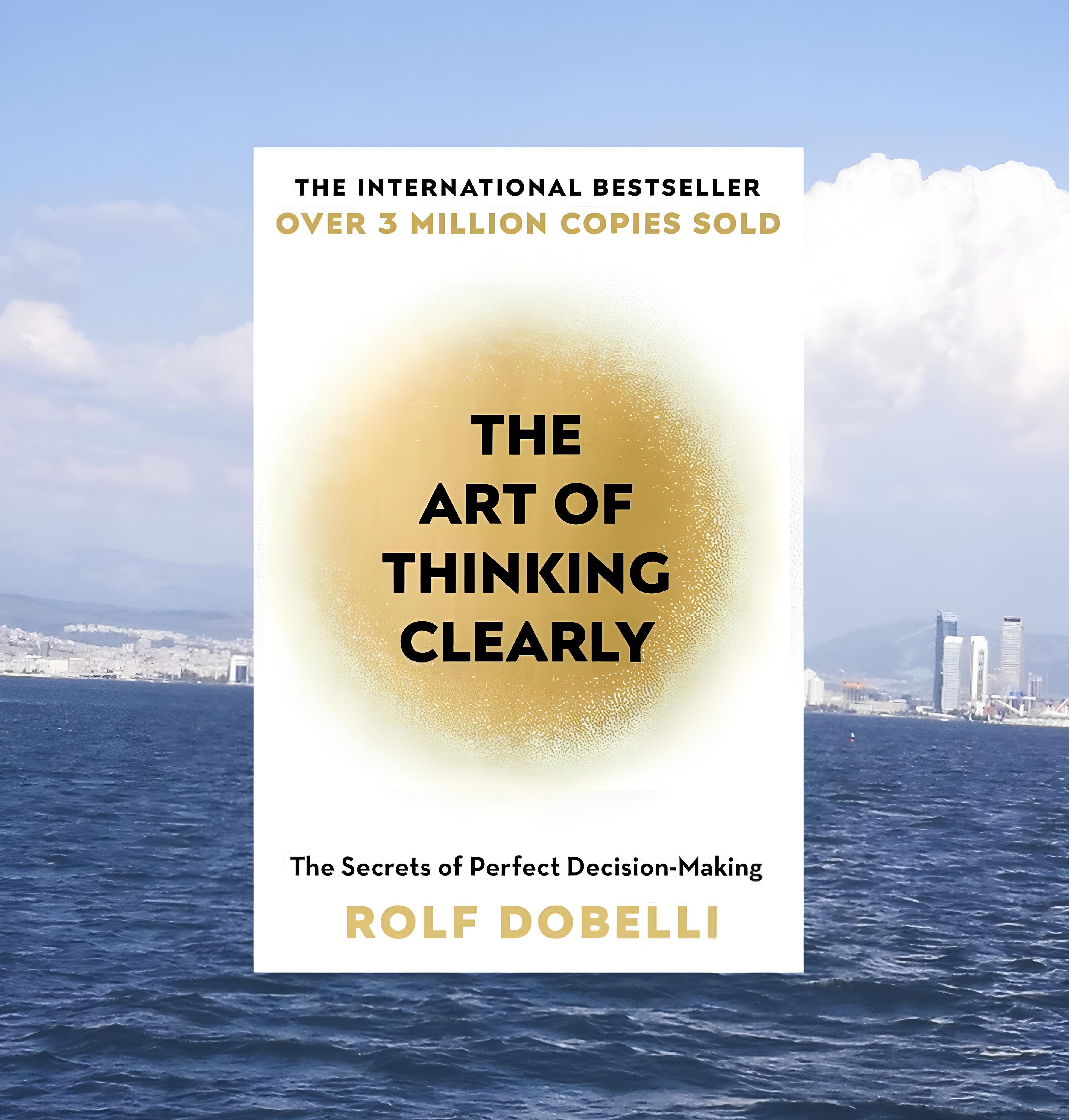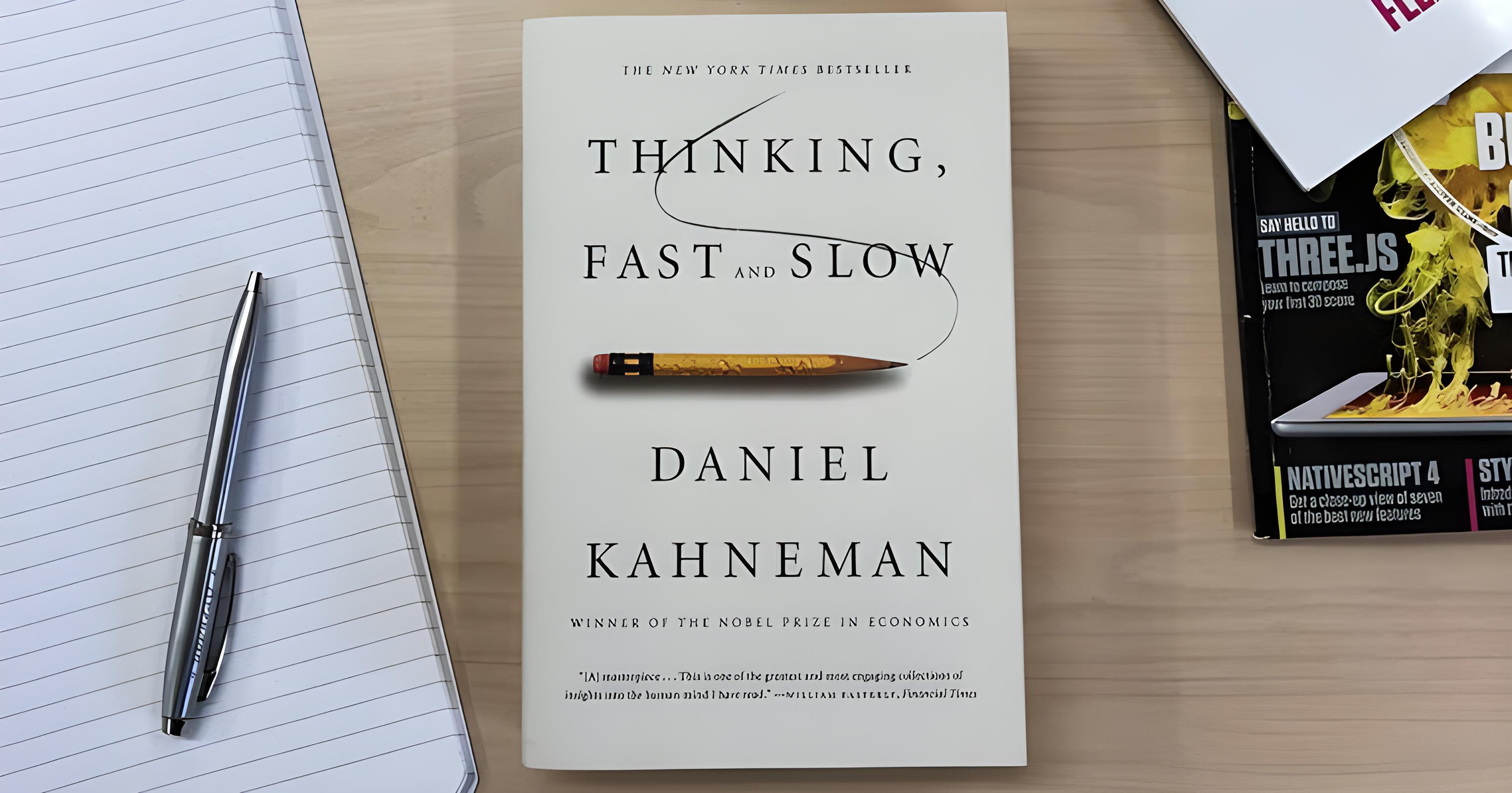Back
Aditi
Will become a inspir... • 2m
It’s All in the Wording: How the Framing Effect Shapes What We Buy” The Framing Effect is a cognitive bias where people make decisions based on how information is presented rather than the facts themselves. In business, marketers use this to shape perception and influence choices. For example, saying a product is “95% fat-free” sounds more appealing than “contains 5% fat,” though both are the same. Discounts framed as “You save ₹500!” feel more rewarding than “Now ₹1,000.” Businesses use positive framing in product descriptions, pricing, and risk communication to encourage favorable decisions. By carefully choosing words and structure, brands can guide customer behavior without changing the actual offering.
Replies (3)
More like this
Recommendations from Medial
Only Buziness
Business enthusiasti... • 1m
“Same Facts, New Feeling: How the Framing Effect Shapes Customer and Audience Behavior” The Framing Effect is the idea that the way information is presented—rather than the facts themselves—can dramatically influence decisions. In business and media
See MoreOnly Buziness
Business enthusiasti... • 1m
“Feel First, Act Fast: How Emotional Framing Experiments Shape Decisions” Emotional framing is the art of presenting the same message in different emotional tones to influence perception and action. Marketers run experiments to test which emotion
See MoreOnly Buziness
Business enthusiasti... • 2m
“Anchoring Effect: The First Price You See Changes Everything” The Anchoring Effect is a cognitive bias where people rely too heavily on the first piece of information (the “anchor”) they see when making decisions — especially in pricing. Businesses
See MoreOnly Buziness
Business enthusiasti... • 2m
“Brilliance by Association: How the Halo Effect Elevates Brands and Sales” The Halo Effect is a cognitive bias where our overall impression of someone or something influences how we feel about their specific traits. In business, this plays out when
See MoreAsha
Autocorrected existe... • 6d
MIT recently completed the first brain-scan study on ChatGPT users Rather than boosting brain function, prolonged AI use may be dulling it.Over four months of cognitive data suggest we might be measuring productivity all wrong In MIT’s study, partic
See More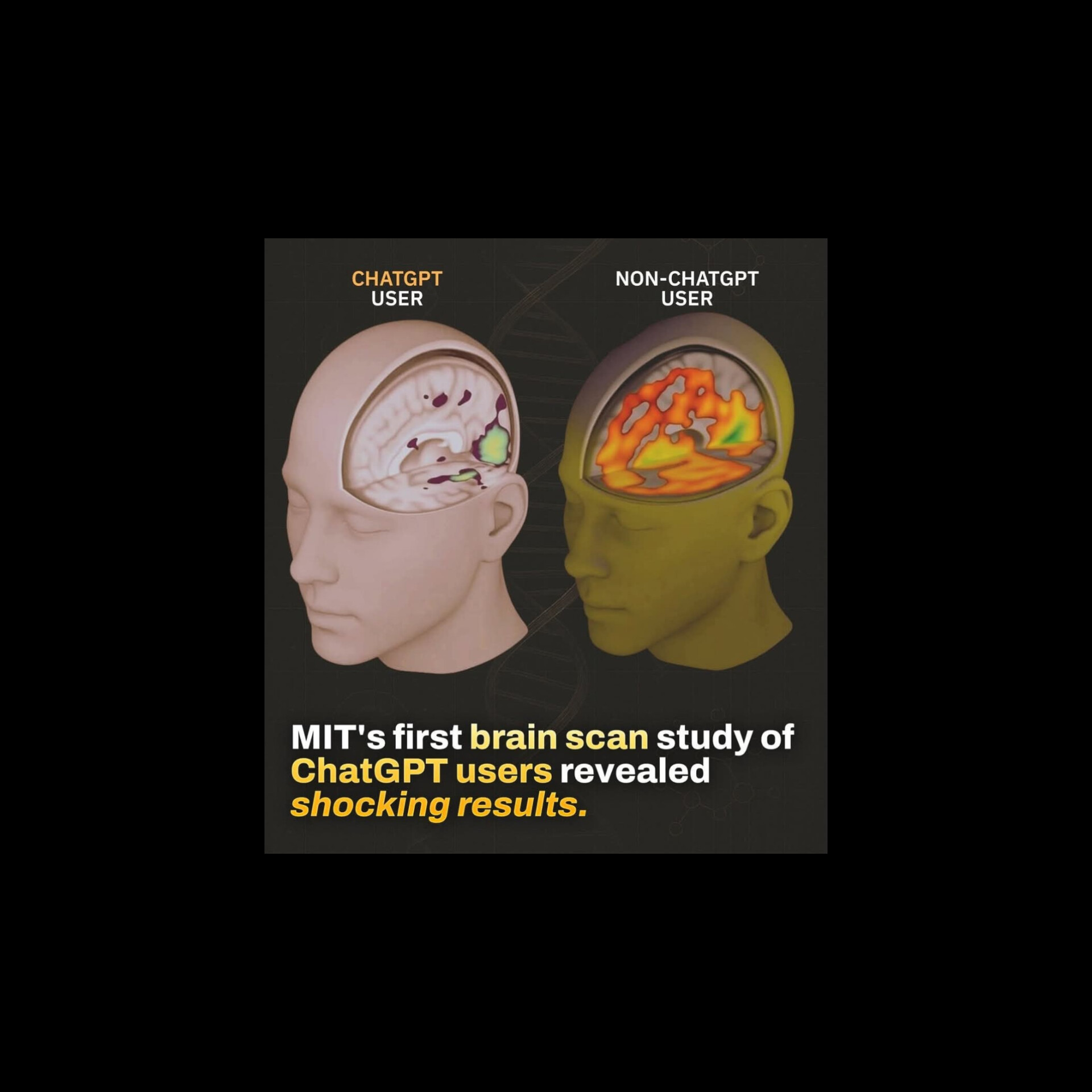
Mukesh Kathar
Robotics Enthusiast ... • 10d
In MIT's study, participants had their brains Status, scanned while using ChatGPT. → 83.3% of users couldn't recall a single sentence they'd written just minutes earlier. →In contrast, those writing without Al had no trouble remembering Rather than b
See More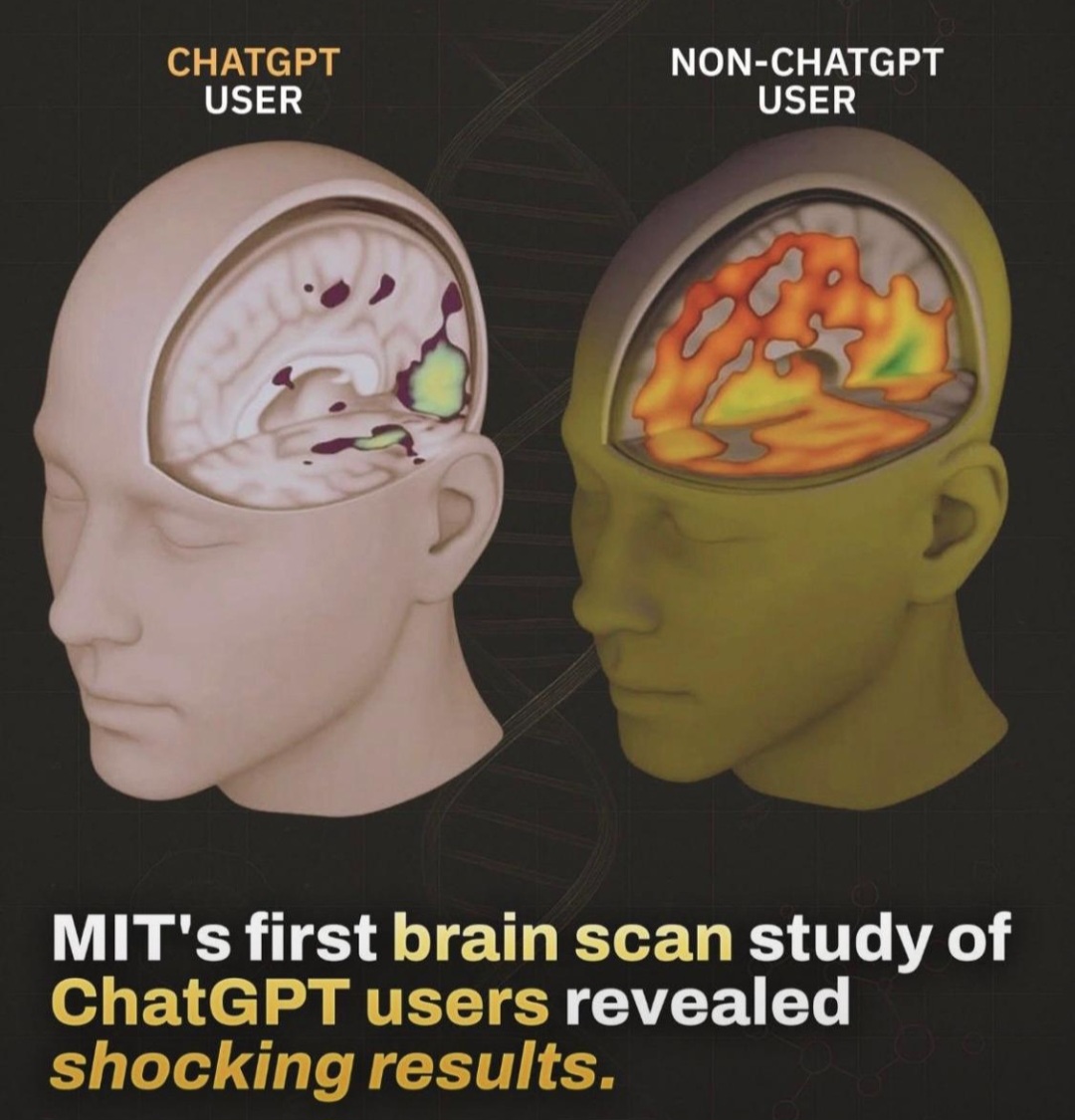
Download the medial app to read full posts, comements and news.







